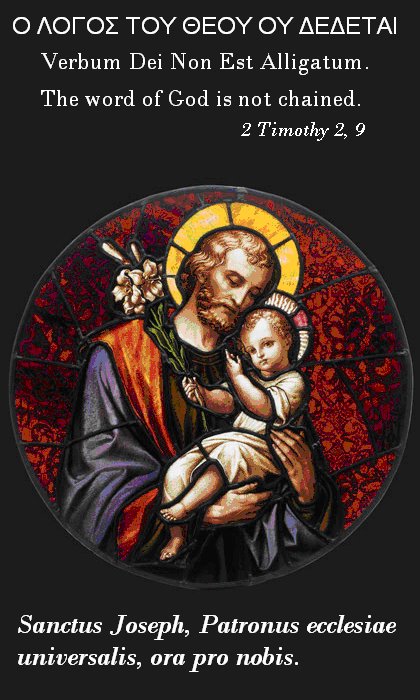"... I beheld, sorrowing, the Healer's Tree
till it seemed that I heard how it broke silence,
best of wood, and began to speak:
'Over that long remove my mind ranges
back to the holt where I was hewn down;
from my own stem I was struck away,
dragged off by strong enemies,
wrought into a roadside scaffold.
They made me a hoist for wrongdoers.
The soldiers on their shoulders bore me,
until on a hill-top they set me up;
many enemies made me fast there.
Then I saw, marching toward me,
mankind's brave King;
He came to climb upon me.
I dared not break or bend aside
against God's will, though the ground itself
shook at my feet. Fast I stood,
who falling could have felled them all.
Almighty God ungirded Him,
eager to mount the gallows,
unafraid in the sight of many:
He would set free mankind.
I shook when His arms embraced me
but I durst not bow to ground,
stoop to Earth's surface.
Stand fast I must.
I was reared up, a rood.
I raised the great King,
liege lord of the heavens,
dared not lean from the true.
They drove me through with dark nails:
on me are the deep wounds manifest,
wide-mouthed hate-dents.
I durst not harm any of them.
How they mocked at us both!
I was all moist with blood
sprung from the Man's side
after He sent forth His soul.
Wry wierds a-many I underwent
up on that hill-top; saw the Lord of Hosts
stretched out stark. Darkness shrouded
the King's corse. Clouds wrapped
its clear shining. A shade went out
wan under cloud-pall. All creation wept,
keened the King's death. Christ was on the Cross.
....
'Now, my dear man, you may understand that I have suffered to the end the pain of grievous sorrows at the hands of dwellers in misery. The time is now come that men on earth, and all this marvellous creation, shall honour me far and wide and address themselves in prayer to this sign. On me the Son of God spent a time of suffering. Therefore do I now tower up glorious beneath the heavens, and I have the power to save every man who fears me. Formerly I was made the worst of punishments, the most hateful to the peoples -- before I opened to men, the speech-bearers, the right way to life.
Behold, the Prince of Glory then exalted me above the trees of the forest, the Keeper of the Kingdom of Heaven; just as He also, Almighty God, for the sake of all mankind, exalted His mother, Mary herself, above all womankind.
I now command you, my dear man, to tell men about this sight ... But every soul on earth who intends to dwell with the Lord shall come to the Kingdom through the Rood.'"
Selections from "The Dream of the Rood", translated from Old English by Michael Alexander.
The oldest version of this remarkable poem, one of the earliest extant examples of Old English verse, consists of 15 lines carved in runes on the Ruthwell cross, a stone cross in Ruthwell, Scotland, that has been dated to the early 8th Century. The unknown author may have been a contemporary of Bede the Venerable. In fact, the cross was made after the return of Bede's abbot from Rome. He had been attending the festivities there in 701 connected with Pope Sergius I's miraculous discovery of a piece of the True Cross.
The later, expanded version of the poem, and the original source of the selections quoted above, is found in manuscript in the Vercelli Book, in the library of the cathedral of St. Andrew in Vercelli, Italy. Also to be found in the manuscript is a poem entitled Andreas, on the life of my patron saint, Saint Andrew the Apostle, and another, Elene, on St. Helena, the mother of Constantine, whom tradition remembers as the one who found the True Cross. Some variants of her legend hold that she was a British princess (it should be noted that Constantine was born in York). All three poems, together with some sermons, are in the West Saxon dialect of Old English. The book is believed to have been written in the late 10th Century. Some scholars have suggested that the fuller treatment of the rood poem found in the manuscript was prompted by the fact that King Alfred (Alfred the Great), when he was in Rome in 885, was given a relic of the True Cross by Pope Marinus.
Vercelli, at the foot of the Italian Alps, is a city on the Via Francigena, the route that numberless pilgrims from England, including several Saxon kings, took to reach the Eternal City, the See of St. Peter. There were so many of these pilgrims that Rome had a Saxon quarter. As readers of this blog know, I intend to follow in the footsteps of these ancient pilgrims this summer, Deo volente: from Canterbury, England all the way to the Vatican, on foot. Prayers, please, for blessings on this planned pilgrimage.
Saturday, March 14, 2009
Subscribe to:
Post Comments (Atom)

No comments:
Post a Comment